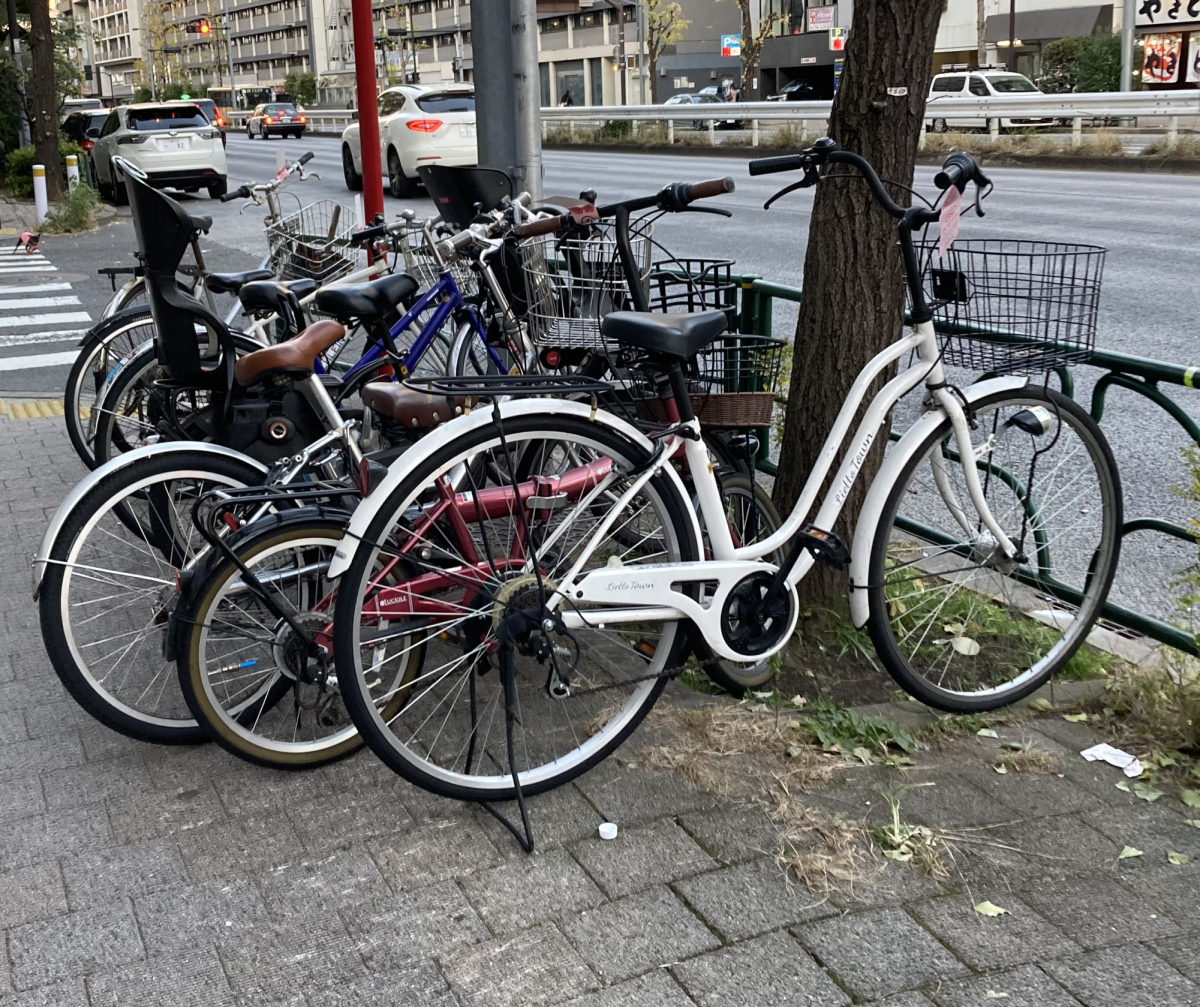Living in Japan while not being fluent in Japanese can sometimes feel like it’s impossible to find extracurricular opportunities that are foreigner-friendly. While ISSH does provide a lot of opportunities within the Kanto international school space, there are plenty of opportunities available outside of school.
Out-of-school activities can provide multiple benefits – students can improve their Japanese skills, interact with people from different backgrounds, and help make a difference in their community.
Whether it be volunteering, part-time jobs, or owning a small business, here are numerous opportunities compiled into a short list!
Volunteering Opportunities
Multiple English-friendly volunteering organizations are easily accessible to international students. Volunteering provides students with a chance to connect with the broader community and meet people from different backgrounds.
Kayla A. L. (26), said that her volunteer work with Second Harvest and the Tokyo Union Church was both meaningful and accessible, despite language barriers. “Through these organizations, your work is going towards the broader Japanese community,”, she explained. “It’s nice to feel connected.”

Ages allowed: All ages, unless specified
Specialty: Wide range of activities from elderly salons to English teaching.
Hands On Tokyo is a non-profit organization based in Minato that regularly updates new opportunities on its website daily. To join an event, simply scroll down on their home page to see the complete list of activities for that month. While rare, if specific requirements are needed for volunteers, they will be stated in the activity description.
2. Second Harvest

Ages allowed: 12+
Specialty: Food donation pick-ups
Originally from Canada, Second Harvest is an English-speaking friendly NPO and Canada’s largest charitable food organization. On their website, alongside volunteering opportunities, there are options to support the community through food donations and financial support. Little to no Japanese ability is required for all activities.
3. Tokyo Union Church

Ages Allowed: All
Specialty: Christian Community Building
The Tokyo Union Church is an international, English-speaking interdenominational church in Shibuya, Tokyo. Volunteer activities mainly center around spreading the Christian faith, but non-religious activities like making bento to help the local community are also available. Tokyo Union Church welcomes volunteers who attend services regularly.
Summer Camp Counselor Opportunities
Becoming a summer camp counselor could be a great way to develop valuable leadership, experience, and communication skills.
Sakurako P. (26), who has worked as a camp counselor for both Nanbo Discovery Camp and Sacred Heart’s EFL program, said that the workload can be intense but rewarding: “You have to be the one that’s putting the kids to bed or rescuing them from the ocean, so I feel that it’s a pretty special job… It’s genuinely like the most survival mode I’ve ever been in.”

Photo: Discover Japan
1. Nanbo Discovery Camp
Ages Allowed: 16+
Where: Chikura, Chiba-ken
When: Summer and Winter, sessions vary
During the summer, many ISSH students, alongside students from other Kanto schools, attend the Nambo Discovery Camp. The program is entirely in English and requires no Japanese to apply. However, applicants must first attend the camp as counselors-in-training for at least one year to become counselors.
2. ASIJ Summer Day Camp

Ages Allowed: 15+
Where: American School in Japan
When: Multiple five-day sessions during the summer, dates vary
The ASIJ Summer Day Camp is one of the biggest camps for international students, with over 300 positions available each summer. Applicants can choose from specialist, counselor, and swimming coach positions.
3. Summer Camp Discovery

Ages Allowed: 16+
Where: Tokyo American Club
When: Sessions vary from 3-11 weeks.
Contact: [email protected]
This summer camp is held at Tokyo American Club and is completely in English. It runs from 9 a.m. to 3 p.m. and offers seasonal sessions for Summer, Winter, and Spring.
Part-Time Job Opportunities
For students who feel ready and are old enough to work in Japan, part-time jobs can provide valuable skills to prepare for future employment. The legal working age in Japan is 15, and most jobs available for teens are restaurant work or tutoring services. However, work permits are required for students who do not have long-term residence or working visas.
Nami S. (‘26), found her current part-time job through Baitoru, one of Japan’s biggest job-hunting websites. She says that one of the most valuable skills she thought better prepared her for the workplace was “communication with superiors at work”, as “it’s different than how you interact with teachers – you’re talking with your boss and older coworkers.”
Job-Hunting Websites
Indeed: The website is in Japanese, but it has a Google-translated website option. Jobs will specify whether Japanese is required or not.
Mynavi: An app specifically designed to find part-time jobs for international students. Jobs can be searched for based on required JLPT levels, and listings only include jobs that are accessible for students. While the app is completely in Japanese, it has a furigana feature to make navigation easier.
Baitoru: While the website is in Japanese, it also has a Google-translated website option. Levels of Japanese required are not specified, but some job listings will specify if English-speaking applicants are preferred.
GaijinPot: This website is completely in English and easily accessible, but it has fewer job listings than Indeed. It is geared entirely toward foreigners living in Japan.
Jobs in Japan: Similar to GaijinPot, this website is completely in English but has a more advanced job search system.
DIY Opportunities
1. Self-employment/starting a small business
Altair L. (’26) is the owner of a small business on Minne. Altair appreciates the simplicity of the website, saying that “The fact that it’s completely online allows people to translate Japanese messages to any language by using Google Translate.”
minne: Japan’s biggest website for selling handmade products, similar to American Etsy.
Merucari: While this is predominantly a second-hand website, many small businesses share their products on here as well. Many users are on this app, so reach is easy to gain as well.
Pay ID: This website makes it easy for small business owners to start their own websites. The company takes a small fee from profits, but it is much easier than creating a website yourself.
2. Cold-calling
For international students looking for internships or field-specific job opportunities, ‘cold-calling’ businesses, companies, or schools could be a good option. According to Career Launchpad, a successful cold call is brief, personalized, and catchy. A previous article by Miki M. (’22) details previous successful ISSH student cold calling experiences.
While the prospect of finding and making opportunities can sometimes feel out of reach for students who face language barriers, it’s important not to give up, given the valuable skills that can come from volunteering or being in the workforce.
Jim Carrey said it best: “Life opens up opportunities to you, and you either take them or you stay afraid of taking them.”
There’s no better time than now!





























































